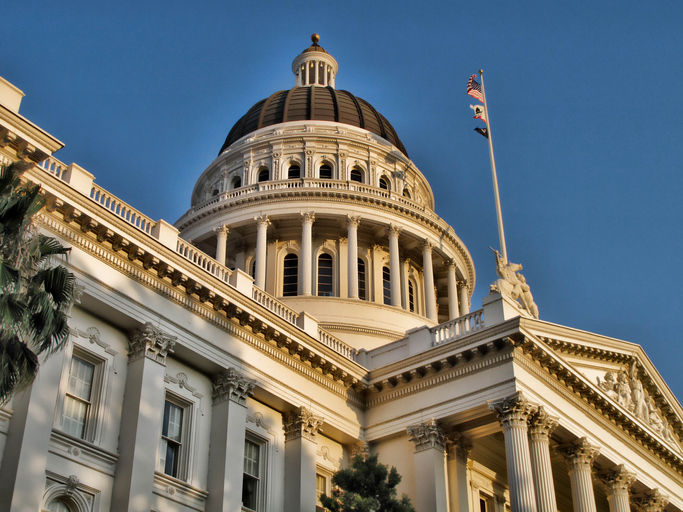After two years of lockdowns prompted by the coronavirus pandemic, on March 28, Congress began a phased reopening of the U.S. Capitol to the public.
On March 28, a cap on the size of tours was lifted from nine to 15 for visitors on official visits. Tours led by lawmakers, or their aides also resumed as well as student tours led by Capitol guides. The Capitol Visitor Center and restaurants and exhibits will open on May 30.
Senator Bill Hagerty (R – TN) made two attempts to broaden visitor access under Resolution 512. Democrats rejected the measure in mid-February. He tried again on March 1.
“Americans everywhere are safely living their lives, going to work and school, visiting stores, attending events, and gathering with their family and their friends. They shouldn’t have to know somebody in order to visit their representative, to take a tour of the Capitol, to get into this building. It’s time for the lockdown on democracy to come to an end,” Hagerty said on the Senate floor.
The measure passed unanimously.
The People’s Building
The first amendment prohibits the government from blocking citizens’ right to “petition the government for a redress of grievances.” But that is exactly what the U.S. government has done for more than 2 years, by barring citizens open access to legislators at the nation’s Capitol, says Art Harman, the executive director of the Conservative Caucus.
“It’s been a great disappointment and disturbing, constitutionally that [the government] can just arbitrarily close the Congressional offices and building,” said Harman. “If you cannot walk into your [representative’s] office and speak you’re limiting that [First Amendment] right.”
On March 9, the National Institute for Lobbying and Ethics delivered a letter to Congressional leadership in Congress, requesting the Capitol re-open fully by mid-July.
“The country has reopened, and businesses have employees back in the office. Kids are back in the classroom. Sporting and concert venues have opened for live events. And, with restaurants trying to make a comeback, we would urge Congress to do the same and reopen to the people without appointments…” stated the letter.
More than 200 organizations and individuals signed the document, including the U.S. Chamber of Commerce, the Freedom Foundation, the American Business Defense Council, and the U.S. Travel Association.
“Something that is written into the Constitution the way the First Amendment is, it is a fundamental right, just like voting,” said Harman. “To ‘petition the government for a redress of grievances,’… That’s one of the fundamental freedoms of our nation.”
Restrictions Before Pandemic
Having spent a lifetime in public policy, Harman has watched Congress restrict basic communication with constituents over the years.
“I published one of the first-ever lists of public emails for Congress and maintained that until they decided to stop that and went to web forms on their websites,” said Harman said. “Then they further restricted [communication] by requiring a person to enter their zip code. Every American should have the ability to contact a member who is not their representative because he or she may sit on a key committee that affects their districts, or they are a key vote that affects every American.”
The most concerning aspect of the continued shutdown is the setting of precedence by the government to repeat mandates at any “opportune” time in the future, says Harman.
“These big-government lockdowns and mandates have caused irreparable damage that will be felt for generations to come,” Hagerty said. “As we move ahead, we must not lose sight of this lesson.”
Ashley Bateman (bateman.ae@googlemail.com) writes from Virginia.




















